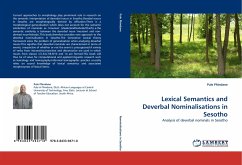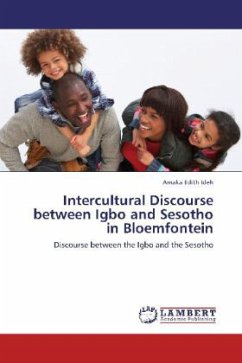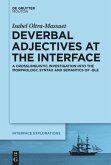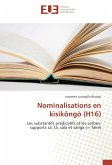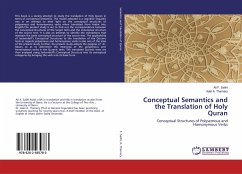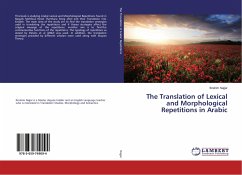Current approaches to morphology play prominent role in research on the semantic interpretation of deverbal nouns in Sesotho.Devebal nouns in Sesotho are morphologically derived by affixation.There is a morphological generalisation which does not account for the semantic similarities of nominals as 'moutswi' (stealer)and'leshodu'(thief),i.e.the semantic similarity is between the deverbal noun 'moutswi' and non-derived noun'leshodu'.This book,therefore provides new approach to the deverbal nominalisation in Sesotho.The Generative Lexical theory framework solve the problem of generalisation when analysing deverbal nouns.This signifies that deverbal nominals are characterised in terms of events, irrespective of whether or not the event is presupposed.A variety of verbs from intransitive,transitive and ditransistive are used in which nouns from classes 1/2,3/4,7/8,9/10 and 14 are formed.This book will thus be of value for computational and applied linguistic research such as lexicology and lexicography.Informed lexicographic practice crucially relies on sound knowledge of lexical semantics and associated morphosyntax of lexical items.
Bitte wählen Sie Ihr Anliegen aus.
Rechnungen
Retourenschein anfordern
Bestellstatus
Storno

